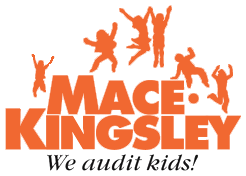The definition of invalidation is: refuting or degrading or discrediting or denying something someone else considers to be fact. Basically it is no attention. It actually acts as force and is equivalent to being struck.
I have seen invalidation take a couple of different forms. The first is obvious: Loud outright words and actions that let someone know they are wrong! The recipient of this force should be doing things the way the person sending the force wants, whether the other is in agreement or not. It is outright bullying.
The second form is more subtle and insidious. It is the smiling, “helpful” criticism, the lack of attention or dismissal of something important to another.
Children and teens are particularly susceptible to invalidation in ways we as adults do not recognize. Because we are not standing in their shoes and “being” them we just fail to see it. But in counseling, this comes up as a problem for a lot of kids, which is why I am addressing it now. Mind you, we can all be guilty of this one, even kids and teens themselves with each other.
Let me give you some examples of this so you can perhaps recognize it better in the future:
I will start with one I myself was guilty of. I love my kids so much and I am so happy to have them in my life. I enjoyed playing with them when they were little. They were so cute that sometimes when they came to me really angry about something, their mannerisms, and sometimes even the words they were using, to me seemed above the vernacular of their age level and would make me smile! Or they would say a word wrong and it would make me laugh. But they were angry!!!!!!! At four years old my daughter pointed out to me just how invalidating this was. She felt I wasn’t taking her seriously and I was making light of her upset. I was shocked! Here I was feeling so much love for her that it brought a smile to my face but to her it was literally a slap in the face. When I put myself in her shoes I realized how bad that would make me feel. So from that time on, I worked hard to listen to her rather than “observe her” so I could really get what she was saying. Was I always successful? I don’t know, I guess we can ask her, but the point is that the invalidation was inadvertent and unintentional and definitely unrecognized.
Another one that comes up with teens sometimes is that they want to talk to their parents about their feelings for some guy or some girl or even perhaps the loss of a friend. Adults, having been through all that and on the other side of it, tend often to make light of it. Or if it is approaching a subject they themselves don’t feel comfortable with, try to side step it. This leaves the teen with the feeling of “no attention given”, “I don’t matter,” or “no help”. Some actually express feeling badly. The person they feel should be helping them the most, their parent, is the last person they can turn to!
If this happens enough, they go out of communication, hang on to their secrets and fears, and turn elsewhere for answers.
The last one I will point out is something you might hear your children and their friends do with each other. Children like to share their wins and accomplishments. It is joyful and it is a pleasure to get acknowledged for their successes. But sometimes in doing this you will witness the “one up-man ship” invalidation. Someone gives a win then the next child tells how his or her own accomplishment is better or more important. Whether it is intentional or not is not the issue any more at that point. The fact is the win is now invalidated and the child feels bad. They might not even know why exactly, they just don’t feel happy any more.
There are probably a million little subtle ways kids can be invalidated. Rather than always look for it, the best way to address and handle it is to: 1) just always be attentive, present and listen well. 2) Acknowledge appropriately all communication given. 3) If there is a handling needed that you don’t know how to address or don’t feel comfortable addressing, then tell them so and then find the answers together. Or bring them to a place you trust to have the correct answers such as Mace-Kingsley Family Center. 4) And when you hear children besting each other with their accomplishments feel free to step in and make sure each child is accepting and acknowledging each other’s wins.
To get the exact technology on this subject of invalidation: what it is and how to handle the upsets, stress and fears that can result from it, please feel free to contact Mace-Kingsley Family Center at 727-442-3922.
